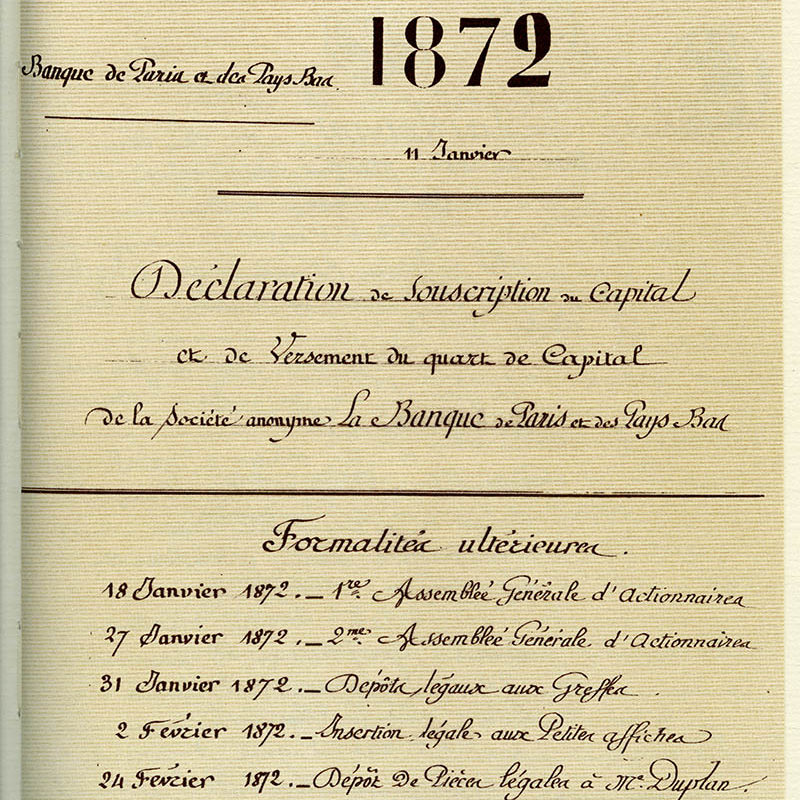The forerunners of BNP Paribas and the stock market crash of 1929

In France in 1930 not all banks were equal when facing the consequences of the Wall Street crash. While some went bankrupt, others had been able to anticipate and analyse the risks and thereby limit the damage.
The effects of the Wall Street market crash of October 1929 were not felt in France until July 1930 and thereafter severely disrupted the banking world between 1931 and 1935.
Banque Nationale de Crédit bankruptcy and recovery
This period saw household consumption fall and loans blocked by the banks. As a result, companies became even more fragile and many went under. It was a vicious circle; the banks were struggling to be reimbursed to such an extent that the weakest amongst them were forced to halt their activity. Those people with savings then tried to protect them by withdrawing their money. In all 400 credit institutions closed during these sombre years. One of the forerunners of BNP Paribas, the Banque Nationale de Crédit, the fourth largest French deposit bank, went under in 1931, committed to far too many business. Wound up in 1932, it resurfaced as Banque Nationale pour le Commerce et l’Industrie and, in the midst of the crisis, managed to develop by retrieving the assets of numerous regional banks facing difficulties.
A prudent policy
In this unfavourable context for businesses, other banks, forerunners of BNP Paribas, managed to keep afloat. The Comptoir National d’Escompte de Paris (CNEP), which had its fingers burnt during its internal crisis of 1889 – it was severely undermined then by uncertain speculation – followed a less risky policy. It knew how to anticipate and also understood that the fall in commodity prices was synonymous with a global down-turn and consequently it reduced its activity. By no longer financing companies that were building up stocks pending a hypothetical rise in prices, the Comptoir shielded itself from bad business. Thus, even though the results and shareholders’ dividends fell, neither the head office nor the French and international branches of the CNEP became victims of the crisis.
Prudence was also key for Paribas when, faced with the rise of the Nazi Party in the Reichstag, it limited its commitments with the German banks and significantly reduced short-term investments abroad which, after the crisis, enabled it to preserve most of its capacity.








